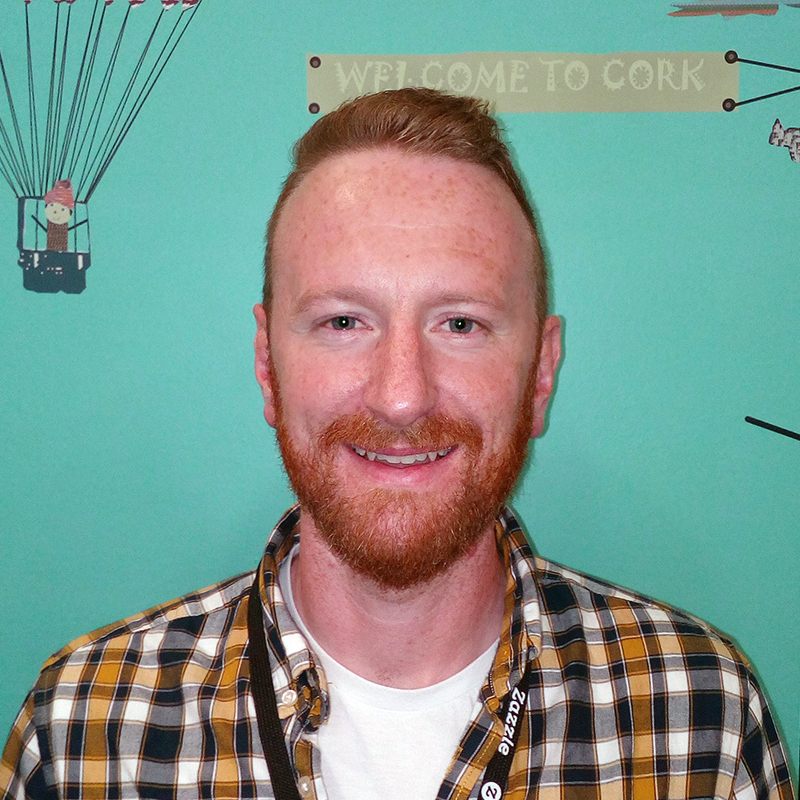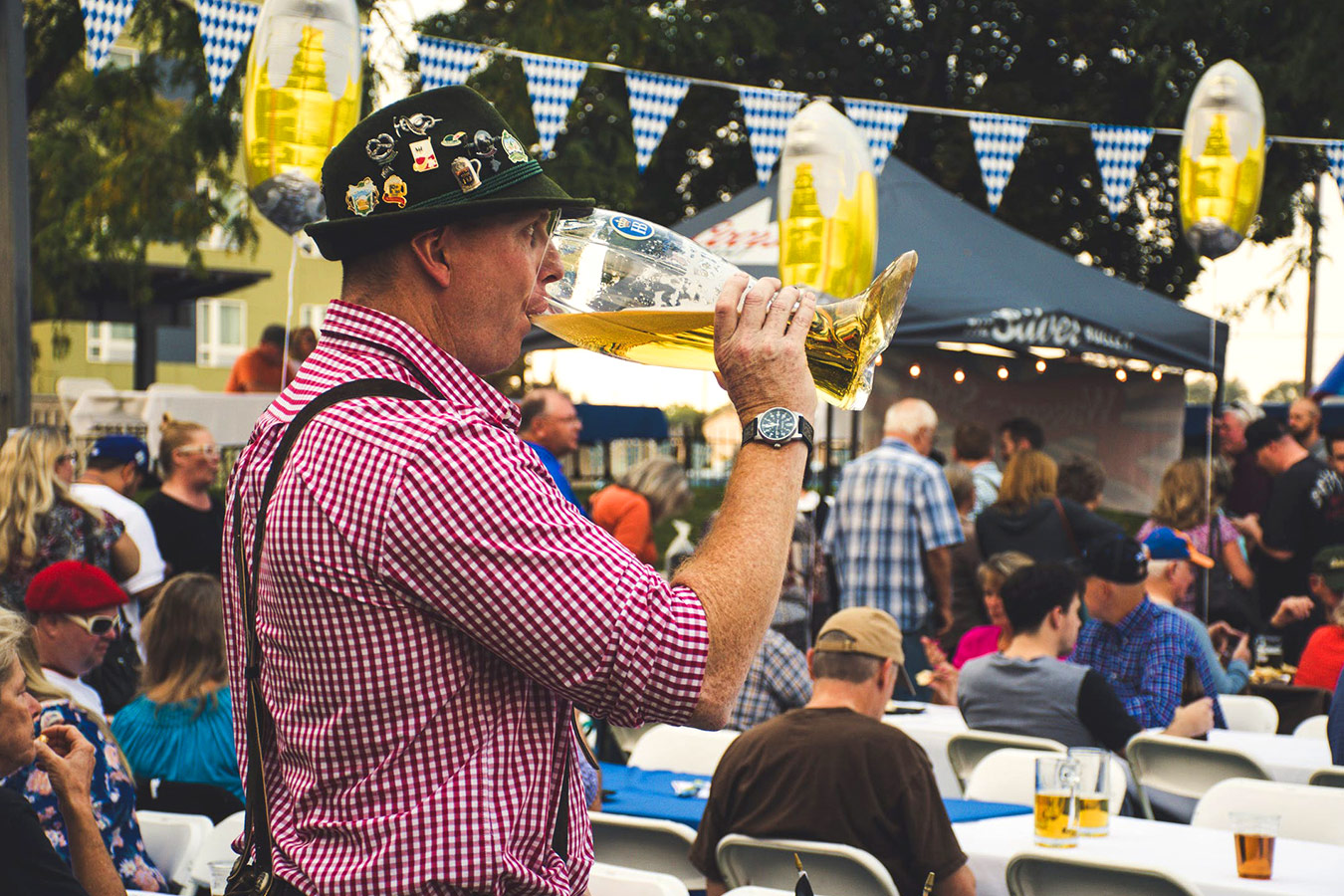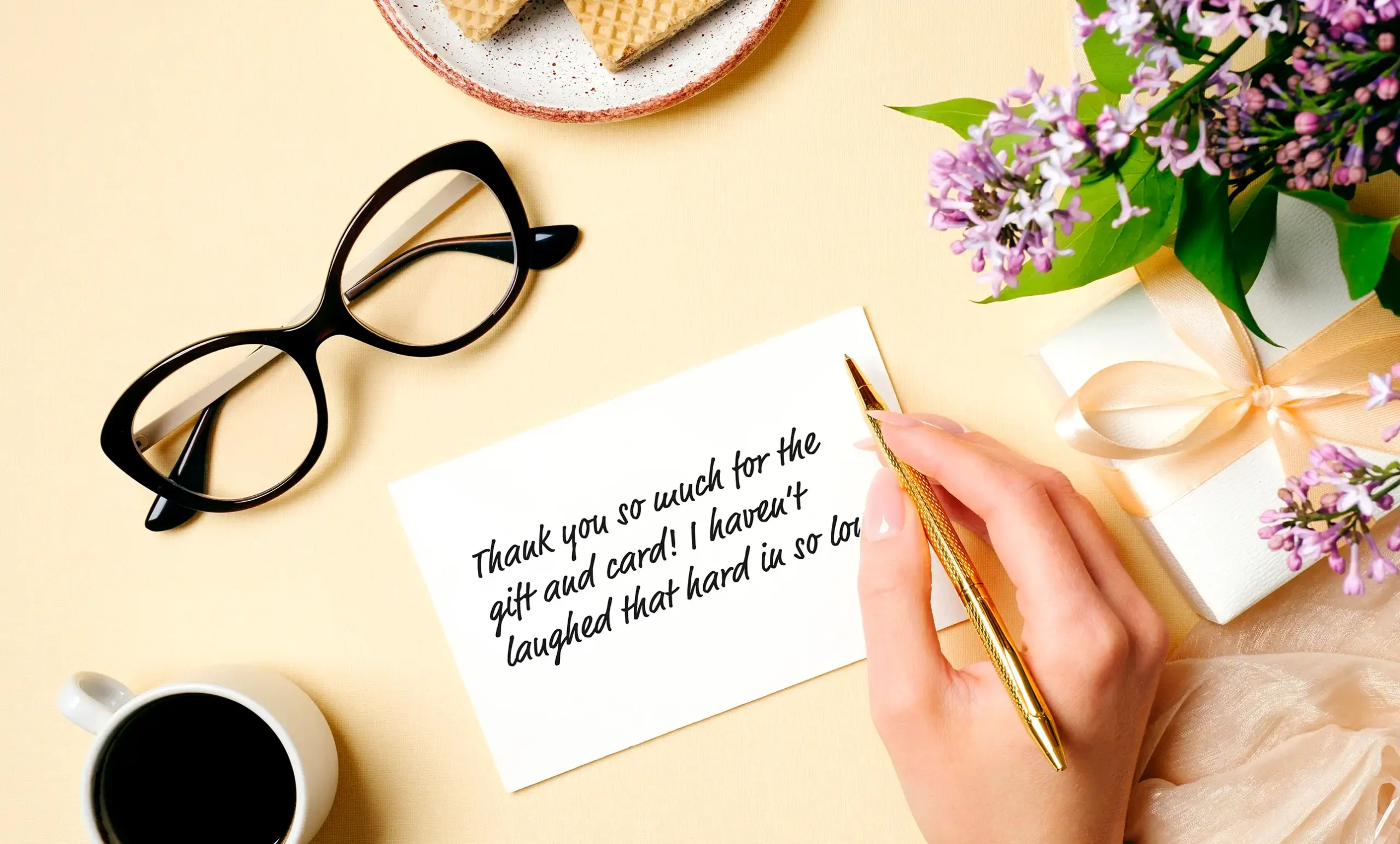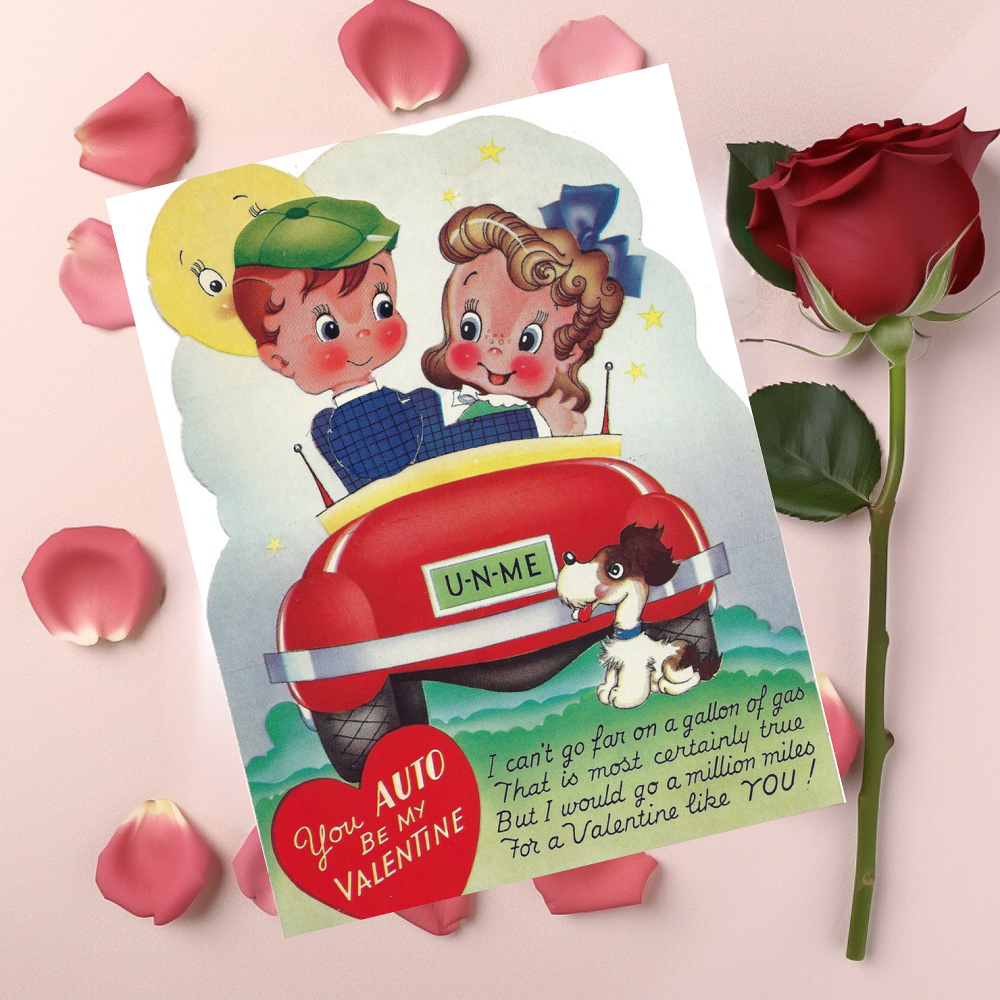Don’t worry, we’re not going to tell you about giant mugs of glorious beer, lederhosen-clad men and women in dirndls—you already know all that. We’re not going to drop stats about the number of salty Bavarian pretzels, pork knuckles, and roast chickens consumed at the festival every year—you’ve probably seen them elsewhere. Instead, we’re going to talk a little history (maybe even solve a little mystery), and provide you with some cool and quirky Oktoberfest facts that you can use to impress your friends over a stein or two this fall.
Oktoberfest starts in September so that nobody gets chilly…
This year, the Munich Oktoberfest begins on September 21 and runs through October 6. And that’s not an anomaly, folks: every year the majority of the famed Bavarian festival takes place, somewhat paradoxically, in the month of September.
So, what’s the deal?
Oktoberfest is so-called because its origins can be traced to a royal wedding that occurred in October of 1810. A few days after the marriage of Kronprinz Ludwig—who would later become king of Bavaria—to Princess Therese of Sax-Hildburghausen, a festival was held in honor of the couple. It must have been quite the shindig. because it has been commemorated annually ever since.
As the years rolled by, however, the festival became longer, and it was moved forward. The reason for this decision? According to the official Oktoberfest website, it was to take advantage of the longer evenings and more desirable weather conditions.
“By moving the festivities up, it allowed for better weather conditions,” says Oktoberfest.de. “Because the September nights were warmer, the visitors were able to enjoy the gardens outside the tents and the stroll over “die Wiesn” or the fields much longer without feeling chilly.”
It’s hard to argue with that reasoning.
The festival varies in length from year to year…
As we’ve already seen, Oktoberfest is a flexible and ever-evolving event. Here we have yet another example of that flexibility.
While the festival traditionally runs for 16 straight days—ending on the first Sunday of October—it is occasionally extended to 17, 18, or even 19 days. But only for very good reasons.
On November 9, 1989, the Berlin wall came down, paving the way for the reunification of East and West Germany. This reunification was formally completed the following year, on October 3, which would later become known as German Unity Day.
In 1994, Oktoberfest organizers decided that any time the first Sunday in October falls on the 1st or the 2nd of the month, the festival would run a little longer to incorporate and commemorate German Unity Day.
In 2010, the festival was extended even further to celebrate its own bicentennial, lasting a whopping 19 days.
Adidas celebrated Oktoberfest 2017 by releasing a rather unique type of sneaker…
With the company based just 120 miles north of Munich in the Bavarian town of Herzogenaurach, the folks at Adidas are keenly aware of the cultural significance of Oktoberfest. Thus, it wasn’t entirely surprising when the sports clothing giant decided to pay homage to the festival in 2017, by releasing a limited edition Adidas München ‘Oktoberfest’ sneaker with the word ‘PROST’—which is German for cheers—embroidered on the sides.
What was a little surprising, however, was the fact that these stylish kicks were being advertised as having “a durable puke and beer repellent coating.” Not exactly Adidas’ most tasteful design quirk, but it’s hard to argue against the practicality of the feature—Oktoberfest isn’t exactly a church picnic after all.
Speaking of church…
Kids actually receive religious sacraments at Oktoberfest…
When you hear someone referring to Oktoberfest Mass, 9 times out of 10 they’ll be talking about beer—as a Mass (spelled Maß) is a liter of beer in Germany. However, they could also be talking about an actual religious ceremony.
The first Oktoberfest Mass took place at the hippodrome in 1956 and was conducted by the head of the Catholic circus and festival workers’ chaplaincy, Father Heinz Peter Schönig. It has taken place annually at the same site ever since. Today the service, which is primarily intended for festival workers, is more of an ecumenical matter with both Catholic and Protestant clergy taking part.
However, what’s most interesting about this ceremony is that it offers the sacraments of baptism, first communion, and confirmation to the children of carnival workers and performers. Baptizing your kids at Oktoberfest: that’s one way of ensuring their hearts will never skip a beat when they hear the commonly dreaded words ‘tell us an interesting fact about yourself.’
Oktoberfest is oh so green…
Don’t worry, we’re not confusing Oktoberfest with St. Patrick’s Day; the Irish national holiday is not the only beer-soaked annual celebration that’s green to the core. Oktoberfest, though, is a very different kind of green.
Most festivals leave behind untold legacies: through their gleeful overconsumption and waste production, they stomp massive carbon footprints all over our increasingly vulnerable environment. Oktoberfest, however, has become a renewable energy-fueled beacon, showing festival organizers a more sustainable way forward.
As far back as 1997, Munich was being lauded for its commitment to making Oktoberfest as eco-friendly as possible. That year, Germany’s Federal Ministry for Economic Affairs bestowed upon the city a project prize for “Environmental Guidelines Governing Major Events.” This award—sometimes known as an ‘Eco-Oscar’—acknowledged the 1991 decision to ban disposable tableware, as well as various other measures taken to reduce waste at the festival.
Things have only continued to improve in the years since: 1998 saw the introduction of a water recycling program; in the year 2000, festival organizers began using green electricity to light and operate public spaces; in 2012, it was announced that all power supplied to the festival would come from renewable sources; and, all the while, there has been a continued preference shown towards organic food vendors.
That’s certainly something worth toasting to. A hearty Prost to you, Munich!

Now let’s try to solve that mystery we mentioned in the opening paragraph…
How many Einsteins does it take to screw in a light-bulb?
One story that we encountered time and time again whilst researching this article was of a young Albert Einstein working at Oktoberfest’s famous Schottenhamel tent. No, E was not an MC; rather he was an apprentice to his father and uncle, who were hired to equip the tent with electric lighting for the very first time. According to the story, Albert was among those given the task of screwing light bulbs into the roof.
There are, however, a few different versions of this tale floating around cyberspace: most claim Einstein was 17 at the time, but while some suggest he carried out the work in 1896 (when he genuinely was 17 years old), others say he did so in 1901, and yet more say it was 1908. All claim it as fact!
Something doesn’t add up.
Based on what we found when we delved further, J. Einstein & Cie were indeed hired to introduce electricity to the Schottenhamel, but that happened in the mid-to-late 1880s when Albert was 5-10 years old. By 1896, the company had gone out of business.
Does that mean the story is pure fiction? Not necessarily. Albert could conceivably have worked on the site with his dad and uncle when he was but a small child, or he could have worked there for another company years later; perhaps the details of the story just got a little muddled over the years.
While we’re open to the possibility that there is some kernel of truth in this, Amadeus Danesitz, who wrote a history of the Schottenhamel family, last year told the Bavarian newspaper Sueddeutsche Zeitung that he never found any evidence to back the story up.
That’s a shame.
Armed with these interesting facts, you’ll be able to hold your own in any Oktoberfest-related conversation—whether it’s in your neighbor’s back yard or underneath the Schottenhamel tent itself. Either way, enjoy Oktoberfest!

Seamus is a Content Specialist at Zazzle. He is quite happy in the role. So, if you’re following, that makes him a content Content Specialist. Seamus likes to write, read, watch sports, drink good beer/coffee, and spend time with his two beautiful kids. To say that he doesn’t like ketchup is an understatement.





Our local German club brings in kegs of German beer and bands in September/October. If you can’t get to the “real thing” this isn’t a bad second choice. Really a lot of run.
That does sound like a great alternative to making the trip to Germany. Thanks for sharing!